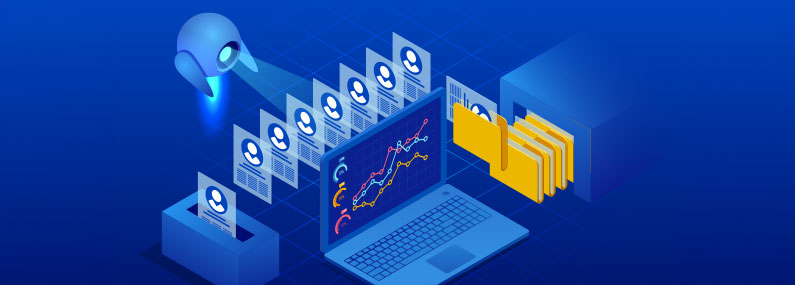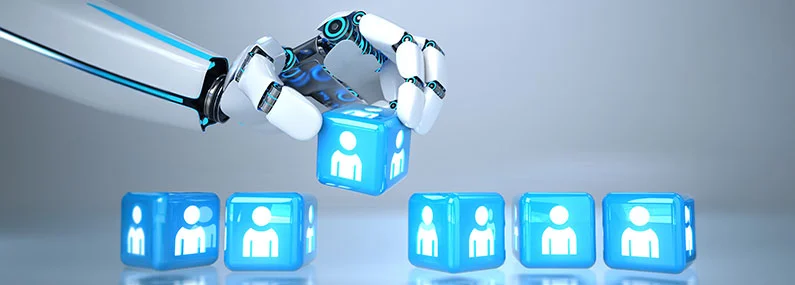Artificial Intelligence (AI) is rewriting the rules in multiple industries and hiring is no exception. India has one of the fastest-growing recruitment industries in the world.
The Indian recruitment market is currently a $10 billion industry, growing at 28% percent YoY. With a burgeoning young population that’s entering the workforce each year, this is an industry poised for innovation.
AI’s introduction comes at a time when recruitment is also shifting towards skill-based hiring. Organisations and recruiters are increasingly realising the importance of focusing on skills over qualifications in their hiring strategies.
There is just one problem. While the industry might have embraced skill-based hiring, this isn’t the way in which candidate data is available to recruiters.
Just take the resume of an average young professional. They provide a snapshot of their educational qualifications and work experience, but rarely say anything about the specific skills. A software engineer might list out the programming languages they know. But it’s still left to the recruiter to guess their proficiency.
Like other aspects of traditional recruitment, this assessment is often a time-consuming effort.
To make the shift, we need to move beyond user generated content and harness the power of system-generated insights. Adopting AI tools here offers a huge advantage.
It can identify and gauge a candidate’s proficiency based on existing data points, making the way for more nuanced recruitment. It can also administer specific skill-based assessments that help gauge the skills of each candidate.
Tech in Recruitment — What’s New?
Over the past decade, we’ve seen the adoption of technology-driven solutions in recruitment — right from automated resume screening and assessments to video interviews — that have made hiring more efficient. The introduction of AI just pushes the envelope further.
Imagine the career lifecycle with five key stages:
- Career discovery (where individuals figure out which field to venture into)
- Skilling and assessment (identifying what skills to acquire)
- Digital identity (creating an appealing work portfolio or verified job profile)
- Interview preparation (attending mock interviews and skill interviews)
- Job discovery (finding the right job, evaluating a job offer etc.).
The introduction of artificial intelligence can enhance the candidate experience at each of these stages, streamlining processes and reducing effort. Here’s how:
Career discovery: This is the phase where individuals figure out which field to venture into, often requiring career counseling. A conversational AI can help job seekers figure out what stage of their career journey they are in and provide appropriate inputs.
Skilling and assessment: This involves identifying what skills to acquire, and how to get certified and assessed. Many companies are moving away from proctored examination-like assessments to those that are tailored to the specific individual.
Digital identity: It’s about creating an appealing work portfolio, video profile, and a verified job profile. AI tools can help vet this digital identity and ensure that the job seeker is presenting the best version of themselves to potential employers.
Interview preparation: This encompasses attending mock interviews, skill interviews, and connecting with mentors. Based on what job has been applied to, generative AI can generate the right set of interview questions and answers that will help the jobseeker be better prepared.
Job discovery: AI tools exist that don’t just help jobseekers find the right job, but also customise job applications, evaluate a job offer, negotiate salaries, and more!
Job seekers can think of AI as a personal coach. It is able to offer immediate help and handholding when they look for a job.
Here’s one example: By deeply analysing a job seeker’s profile, smart tools can highlight the informational gaps and help correct them. It can help pre-fill the application for various jobs. It can suggest additional certifications and assessments that can make a profile stand out. Customised digital assessments and mock interviews can help candidates prepare for specific job roles.
Beyond the tailored experience, AI tools can also reduce the turnaround time hiring by removing inefficiencies in the recruitment process.
The days of applying for “sick leave” or “personal days” just because you have an interview are going to be a thing of the past. AI-powered virtual interviews will let you attend interviews at your own pace, without disrupting your schedule. Or the long delay in hearing back after an interview is done? Regular, customised, automated communications after each stage can eliminate that.
At foundit, we’re excited about the series of new AI feature updates that we have planned for both seekers and recruiters.
- We use generative AI to generate more information about every job posted on foundit, providing job seekers with complete information about a job, thus helping them with their decision making.
- We use AI in combination with a resume parser to save job seekers the trouble of manually filling in their profile information.
- By using generative AI, we ensure job seekers enter all the relevant skills that they possess
- We use generative AI to generate all descriptive fields in a job-seeker’s profile as well as resume.
- We use AI to optimise a jobseekers resume for the job being applied to.

Addressing Some Concerns About AI in Hiring
As much promise as AI holds, there are some concerns. First, will AI replace humans altogether in the hiring process? What about data privacy?
First, AI tools will make hiring more efficient. they won’t entirely replace recruiters. It will just allow recruiters to focus on more high value tasks.
As Walt Disney said, “You can dream, create, design, and build the most wonderful place in the world. But it requires people to make the dream a reality.”
Second, a lot of the candidate data on a platform like foundit is governed by strict data privacy laws, which means the AI features will also operate under these established frameworks.
An additional detail that’s important.
If implemented right, AI can eliminate most of the unconscious bias in the hiring process. Job seekers can rest easy knowing that they will be judged purely on the merit of their application.
The future of recruitment with AI isn’t just about efficiency or convenience — it’s about creating a fair, merit-based, and personalised hiring process. It’s about making sure that every job seeker gets the best shot at landing their dream job, at finding their perfect fit.
It’s time we embraced this new era of recruitment, where we use AI to build a more inclusive and efficient hiring industry.




